International Women's Day 2022 is celebrating breaking the bias against women in society. Whether working in a male-dominated industry or simply being paid less than your male colleague, equality for women is as important as it's ever been.
As a disabled woman in the music industry, it's apparent that discrimination against women and disabled people is still very present in society. From the under-representation of female artists to the lack of access at venues that prevents me from carrying out my job, music journalism isn't always the most welcoming of industries for those looking to get started. I started by creating a blog online where I would post different reviews of songs or albums that I enjoyed. This then led to paid work which is when I started to realise that it's much harder to be in this industry as a woman in a wheelchair than I’d previously considered.
When I first started, I was apprehensive about posting anything negative connotation, in case people took it the wrong way on social media. My timeline was full of people tearing down successful women for their opinions, and I didn't know how people would react to me as someone who wasn't just a woman but had a disability. I felt stifled by this, which meant I had much less creative freedom and existed within the boundaries I had placed to protect myself.
The UK Music Diversity report from 2020 found that only 5.8% of the people surveyed had a disability. While this covers only a small section of those in the music industry, it speaks volumes, perhaps also giving more insight into how accessible music venues are for disabled people.
There have been many times where I've wanted to cover a gig or show but have been unable to due to lack of access. This means that I'm losing out on work, and musicians are losing out on press coverage. According to Ofcom research carried out in 2019, journalism is the worst for disability representation in the TV sector, with 77 percent of staff who are not disabled compared to an industry average of 55 percent.
I think something people find most confusing is that I'm allowed to be interested in indie music, something that is so regularly attached to the male space – and no, it's not just because I “fancy the lead singer”. All too often, we equate a woman's knowledge with her appearance. In a wheelchair? “Awh, bless her”. I'm a woman with experience in my field, not a 3-year-old child; therefore, I expect to be treated as a woman, not someone for you to pity or stare at.
Now that I've found my place in the industry, I've started to use my voice more and trust in my own opinions, finding validation in myself rather than the thoughts of others. I realize that people don't necessarily have to accept me as a disabled woman; that's their prerogative. However, that doesn't mean that I still won't be in the industry because their opinion does not equate to my skill set or worth.
I think what it means to be a disabled woman in an industry that is so heavily populated by men is power and confidence combined with a burning passion to do what I love, despite judgment or fear. It means to trust my instinct and to be proud of how I am achieving my dream regardless of my disability or gender.
.

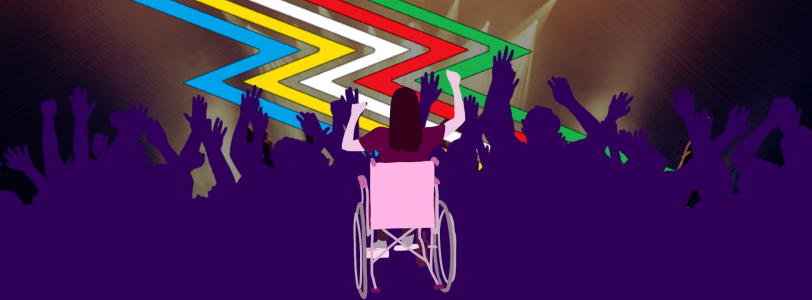
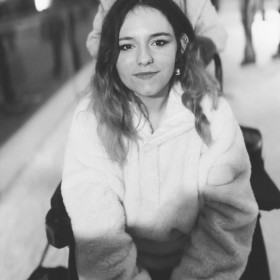
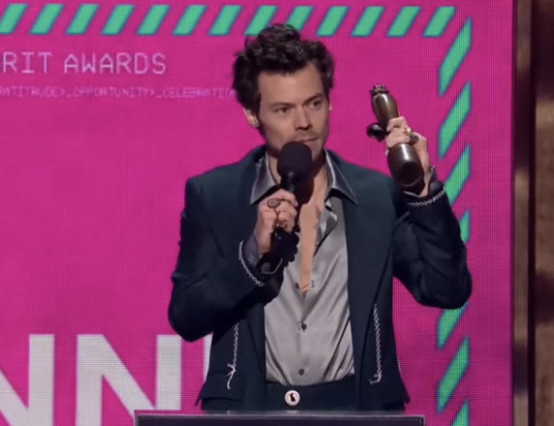
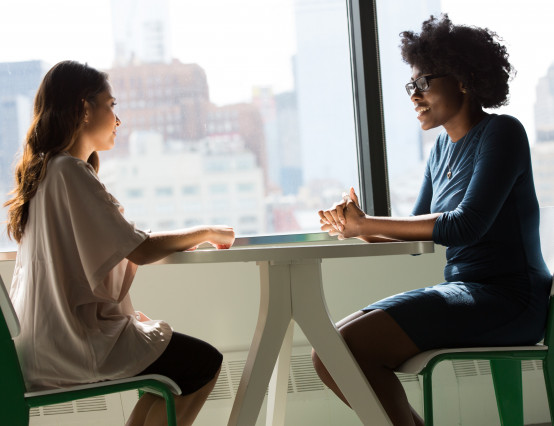
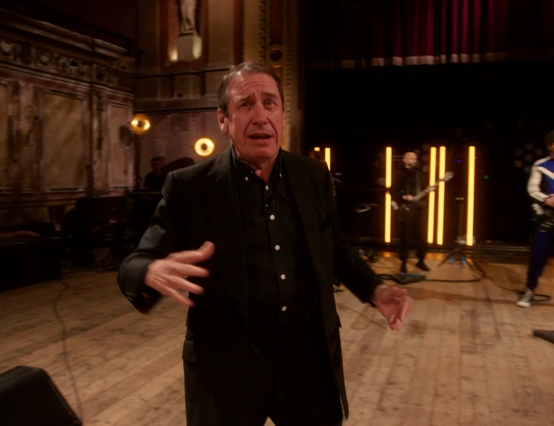


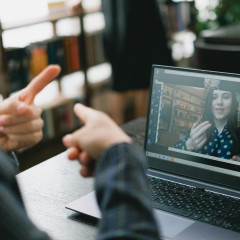
0 Comments